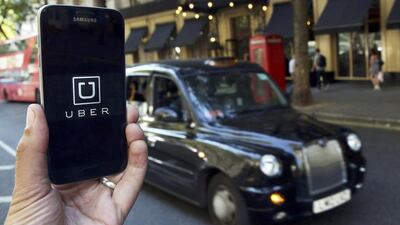Despite its commercial success, including revenues in excess of US$6 billion, Uber has recently attracted negative publicity over allegations of sexual discrimination among its employees. Regular consumers are late to the show, however, as many governments have been loathing the Californian company since its inception. What explains authorities’ disdain for such a successful enterprise?
The basic reason is that governments are populated by bureaucrats who enjoy their jobs, and who enjoy exercising authority. Uber threatens both.
How does the US ride-sharing company constitute a threat to the livelihoods of public sector employees? Transport regulation is a complex activity, and it includes the frequently byzantine rules that govern paying someone to transport you from one location to another. In many countries, taxis face complicated registration and operation procedures, which may include arduous training programmes, most famously the black cabs of London, where earning a licence takes years.
It is the job of government bureaucrats to enforce transport regulations, and the more complex they are, the more bureaucrats are required. Uber’s business model is partially built around circumventing prevailing transport regulations – especially those relating to taxis – implicitly lowering the long-term demand for government bureaucrats. It does this by classifying itself in novel ways, such as a “transportation network company” in California. It uses similarly deft designations of its employees to avoid many broad-based labour market regulations. Moreover, it is actively targeting the elimination of its rank-and-file workforce of drivers, via the introduction of self-driving cars, further lowering the need for functionaries to oversee the sector.
In principle, bureaucrats may relish the opportunity to create new regulations in response to Uber’s legal chicanery. However, Uber’s platform is fundamentally different because of its flexibility, most notably its lack of physical assets. One of the technology’s features is how easy it is to produce slightly modified clones, making it much harder to regulate. Accordingly, bureaucrats fear that they will always be one step behind Uber and its offspring, which may in turn cause senior policymakers to simply give up.
A small minority of corrupt bureaucrats also see government work as an opportunity to enrich themselves at the expense of the general public, most notably by creating frivolous regulations and offering exemptions or special treatment in exchange for favours or bribes. In public sector economics, this is referred to as “toll-road” legislation – the legal analogue to simply erecting a toll booth on a road and charging people to go through it because they have no choice.
For these unscrupulous functionaries, Uber’s successful avoidance of standing regulations – and its latent ability to dodge future ones – is a threat to their business model. The public sector occasionally attracts workers with paternalistic outlooks who regard Uber’s innovation as a threat to general order, and dislike it on these grounds alone.
More generally, Uber still represents a headache for ethical bureaucrats because it undermines the livelihood of traditional cabbies, who are usually well organised, and may therefore lobby – or even strike, as happened in France – for protection.
Curiously, Uber is a unique example of a disruptive technological innovation where the competitive losers – traditional taxi drivers – are ideally placed to benefit from the new technology, because they are excellent candidates to be Uber drivers. In contrast, when renewable energy displaces fossil fuels, for example, most of those working in the fading sector will never be able to secure jobs in the rising one, which is much closer to the typical case.
What can Uber do to get on bureaucrats’ good sides? Contributing tax revenues is probably a wise strategy, especially if Uber’s novelty increases the economy-level demand for transportation services, as this would create a government financial interest in the company’s perpetuation. But it should not try too hard, because angering numerous stakeholders is the inevitable result of path-breaking innovation. Accordingly, excessive government acquiescence may be a sign of Uber losing its edge.
We welcome economics questions from our readers via email (omar@omar.ec) or tweet (@omareconomics).
business@thenational.ae
Follow The National's Business section on Twitter


